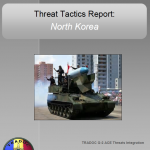
The Korean peninsula is a location of strategic interest for the US in the Pacific Command (PACOM), and many observers note that North Korea is an unpredictable and potentially volatile actor. According to the Department of Defense in its report to Congress and the intelligence community, the DPRK “remains one of the United States’ most critical security challenges for many reasons. These include North Korea’s willingness to undertake provocative and destabilizing behavior, including attacks on the Republic of Korea (ROK), its pursuit of nuclear weapons and long-range ballistic missiles, and its willingness to proliferate weapons in contravention of United Nations Security Council Resolutions.”
